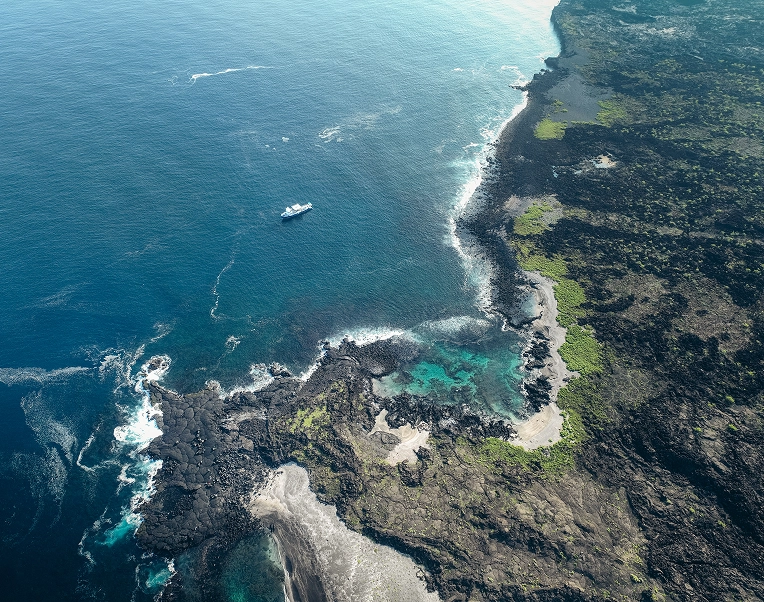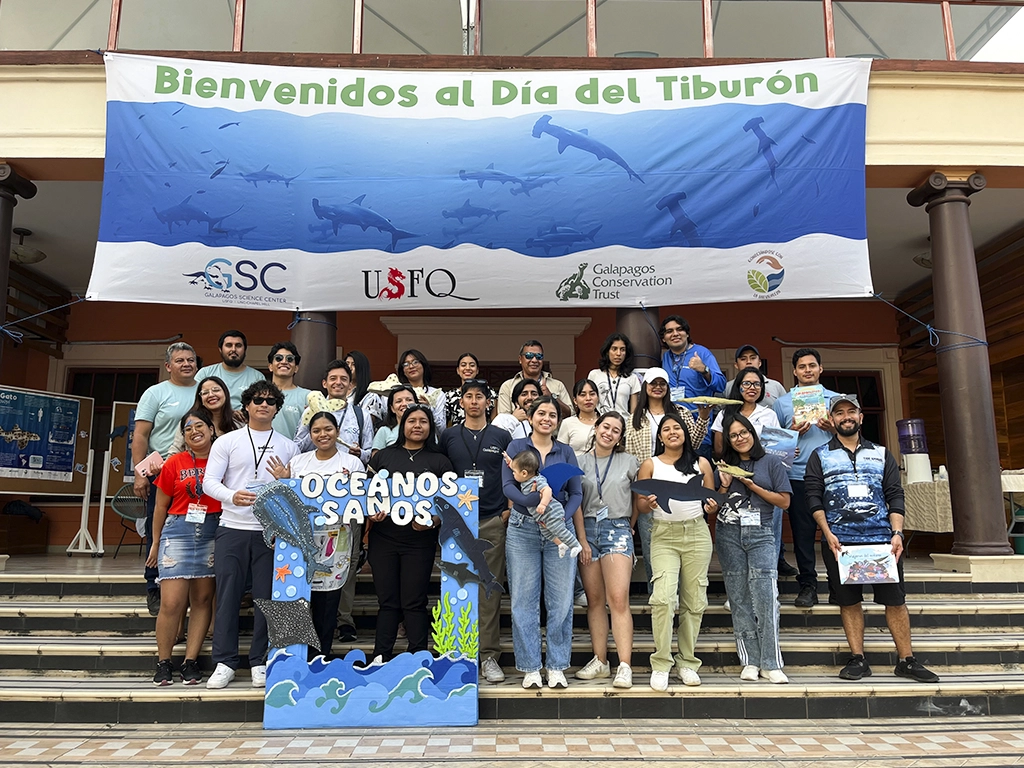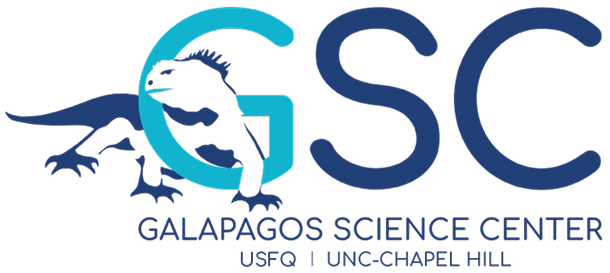Fhoto: Andrew Russel
El Galapagos Science Center aspira a consolidarse como el principal centro de investigación en Latinoamérica dedicado a la conservación de Galápagos y de sus frágiles ecosistemas. Promovemos el desarrollo sostenible de las especies icónicas y nativas, así como de los bienes y servicios ecosistémicos y el bienestar de la población local, a través de ciencia interdisciplinaria. Nuestro trabajo se fundamenta en un enfoque integrado que articula investigación de excelencia, educación experiencial y una sólida vinculación con la comunidad.
El Galapagos Science Center es un centro de investigación que articula a científicos de todo el mundo para desarrollar estudios básicos y aplicados orientados a generar soluciones a los complejos desafíos de conservación en el laboratorio natural de Galápagos. A través de la investigación, la educación y la innovación, formamos a estudiantes, fortalecemos las capacidades locales y sensibilizamos a ciudadanos globales sobre la gestión de áreas protegidas, con el propósito de contribuir a la preservación de Galápagos y de otros territorios que enfrentan retos similares en el planeta.
Photo: David Liberio


A través de métodos participativos y enfoques integradores, el GSC trabaja sobre tres pilares:
Investigación interdisciplinaria que incluye las ciencias naturales, sociales y computacionales.
Educación experiencial para informar a la comunidad local y a ciudadanos del mundo sobre desafíos globales importantes.
Desarrollo comunitario mediante diversos mecanismos, incluyendo el Simposio Comunitario Anual del GSC, cursos de capacitación, educación científica en escuelas locales e iniciativas de desarrollo sostenible.


Comprender las dinámicas que moldean el ambiente de Galápagos.

Estudiar cómo el bienestar humano se conecta con los ecosistemas insulares.

Preservar la biodiversidad mediante la ciencia y la acción.

Explorar la vida que hace único a Galápagos.

Proteger los ecosistemas y recursos marinos.
Photo: JA
Únete a nosotros para impulsar la ciencia que genera un impacto

In 2022, the Galapagos Science Center (GSC) and the broader UNC & USFQ Galapagos Initiative will celebrate its 10th Anniversary. We are proud to announce the World Summit on Island Sustainability scheduled to be held on June 26–30, 2022 at the Galapagos Science Center and the Community Convention Center on San Cristobal Island.
The content of the World Summit will be distributed globally through social media and results documented through papers published in a book written as part of the Galapagos Book Series by Springer Nature and edited by Steve Walsh (UNC) & Carlos Mena (USFQ) as well as Jill Stewart (UNC) and Juan Pablo Muñoz (GSC/USC). The book will be inclusive and accessible by the broader island community including scientists, managers, residents, tourists, and government and non-government organizations.
While the most obvious goal of organizing the World Summit on Island Sustainability is to celebrate the 10th Anniversary of the GSC and the UNC-USFQ Galapagos Initiative, other goals will be addressed through special opportunities created as part of our operational planning of the World Summit.
For instance, we seek to elevate and highlight the Galapagos in the island conservation discourse, seeking to interact with other island networks in more obvious and conspicuous ways to benefit the Galapagos Islands, the UNC-USFQ Galapagos Initiative, and the world. We will seize the opportunity to further develop the I2N2 – International Islands Network-of-Networks. Further, we wish to highlight and emphasize multiple visions of a sustainable future for the Galapagos Islands and we cannot do this alone. Therefore, engaging the Ecuadorian Ministry of Environment, the Ministry of Tourism, the Government Council of Galapagos, the Galapagos National Park, and local Galapagos authorities, including government and non-government organizations and local citizen groups, is imperative.

Borrowing from Hawaii’s and Guam’s Green Growth Program and the Global Island Partnership, we wish to examine existing global programs that emphasize island sustainability and their incorporation into life, policies, and circumstances in the Galapagos Islands. We will also seek to enhance our connections with the institutional members of our International Galapagos Science Consortium and expand the Consortium through the recruitment of other member institutions. We will also work to benefit islands and their local communities by working with citizen groups as well as important NGOs who seek to improve the natural conditions in the Galapagos and diminish the impact of the human dimension on the future of Galapagos’ ecosystems.
Lastly, we will use the World Summit to benefit UNC & USFQ and our constituencies through a strong and vibrant communication plan about the World Summit, creating corporate relationships as sponsors, identifying funding goals through donors, and benefiting our study abroad program for student engagement in the Galapagos Islands. We plan to develop and issue a Galapagos Sustainability Communique after the World Summit that includes the vision and insights of all its participants for a sustainable Galapagos with applicability to global island settings.
We are eager to hear your perspective and have you join us at the World Summit on Island Sustainability!